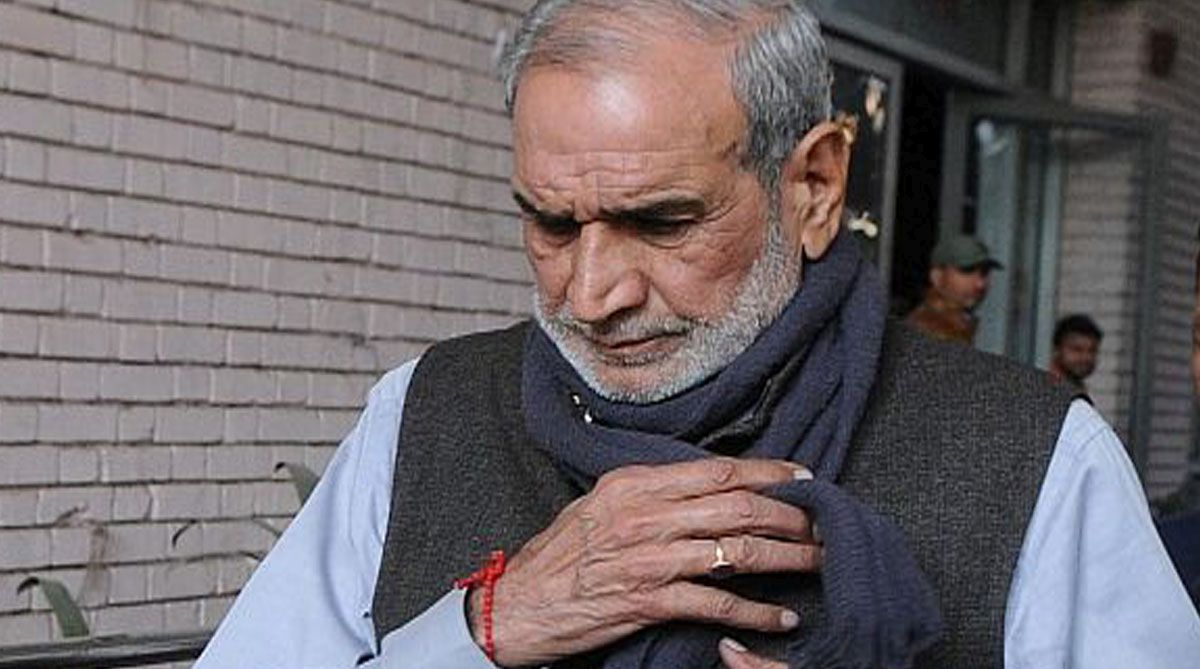Sajjan Kumar awarded life in another 1984 anti-Sikh riots-linked case
The Rouse Avenue court in Delhi, on Tuesday, awarded life imprisonment to former Congress MP Sajjan Kumar in a 1984 anti-Sikh riots case.
This is the second case against Sajjan Kumar in which he is facing trial along with two others, Brahmanand Gupta and Ved Prakash on charges of murder and rioting pertaining to the killing of Surjit Singh in Delhi’s Sultanpuri.

Sajjan Kumar (File Photo: IANS)
The Patiala House Court on Tuesday issued a production warrant against Sajjan Kumar in connection with a 1984 anti-Sikh riots case. The court will hear the matter on January 28.
This is the second case against Sajjan Kumar in which he is facing trial along with two others, Brahmanand Gupta and Ved Prakash on charges of murder and rioting pertaining to the killing of Surjit Singh in Delhi’s Sultanpuri. The case was filed against him by the Central Bureau of Investigation (CBI) on the recommendation of the Nanavati Commission.
Advertisement
The witness, Cham Kaur, had on November 16 identified Sajjan Kumar before the court as one who had allegedly instigated the mob to kill Sikhs. Kaur had told the court that she had seen Kumar allegedly addressing the crowd in Sultanpuri in 1984 and saying that Sikhs had killed “our mother” and instigated the mob to kill them.
Advertisement
Before Kaur, another key prosecution witness Sheela Kaur had identified Kumar as the one who had instigated the mob in Sultanpuri.
The case was transferred from the Karkardooma court to the Patiala House court here by the Delhi High Court, which had directed the district judge to video record the proceedings at the cost of the accused.
Currently, Kumar who is lodged in Delhi’s Mandoli jail, is serving life imprisonment in another 1984 anti-Sikh riots case.
Kumar had earlier challenged the Delhi High Court verdict convicting and sentencing him to life imprisonment for criminal conspiracy to commit murder in the 1984 anti-Sikh riots case.
The Delhi High Court had on December 17 convicted Sajjan Kumar and sentenced him to life imprisonment in the case, describing the mass killings as “crimes against humanity”.
The case relates to the killing of five Sikhs in Raj Nagar part-I area in Palam Colony in South West Delhi on November 1-2, 1984, and burning down of a Gurudwara in Raj Nagar part II during that period.
The 1984 riots followed the assassination of then Prime Minister Indira Gandhi by two of her Sikh bodyguards on October 31, 1984. Hundreds of innocent Sikhs were killed, mainly in Delhi.
According to reports, over 3000 people were killed in the riots in and outside Delhi.
Advertisement